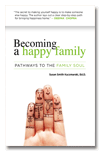Do you have any tips on traveling with teens — what are their needs, how do parents ensure they have fun and have an enriching experience?
1. Peer relationships are everything to a teenager. Friends are all-important. They replace the family, in some ways, as the place where daily relationships are played out. Have your teen take a friend along on your trip.
2. Teens will want to spend lots of time with their friends. Let them. Parents should offer loving help and encouragement at every turn; and never try to join their teen’s group of friends. And parents, if the friends are bad news, figure out why your teen wants to be their friend. You will get some insights into their inner life. Act on this.
3. The job (of both teen and parent) is to STAY CONNECTED. Keep in mind this practical advice for Teen-Parent Communication, when you are traveling together. Use this time to do the following:
- The style of talking that is best is direct, straight, and clear. Don’t give unsolicited advice to your teen — EVER — unless your teen asks for it.
- Listen, observe and don’t “talk at.”
- Help teens let their feelings out — validate and don’t try to change them.
- Stop the questions, the demands, and the inflexible rules.
- Don’t schedule meetings with teens — talk with them on their terms.
4. Remember: teens need enough direction and control to guide them, yet enough room to let them breathe, learn, and discover. There must to be a balance between structure and flexibility. A strong disciplinary approach overlooks the need for growth and exploration during the teen years.
5. Teens are busy practicing a new way of thinking. (Jean Piaget called it “formal operational thought.”) At 16 or 17 years of age, teens have developed the ability to solve problems without the concrete, action-oriented experiences of a child. Teens are forming theories about everything—and testing them out. They make assumptions, consider hypotheses, and work out the inferences that follow. This abstract thinking is actually very difficult to master. Teens argue constantly to practice their abstract thought processes. Parents should encourage lively debates to occur during travel to develop logic skills in their teens.
6. If you get the chance on your trip, try some of the following tips:
- Respect and honor teens and trust them to make good decisions. They won’t always do to, but let them learn from their mistakes.
- Remind teens that you love and support them.
- Focus on their strengths. As parents we tend to harp on problem areas. Talk about what they do well, not what they need to do better.
- Find fun activities. Go to a spa with your daughter or a sports event with your son (or vice versa). You’ll strengthen the relationship and if you’re fun to be with, they’ll want to be with you more often.
7. On your trip, keep in mind that teens are really busy trying to figure out “Who am I?”, what their passions are, and what they want to do. Instead of stepping in and trying to control the process, let their own nature be their guide to becoming more independent and mature. Parents can observe and have a connection, just not run their lives. It’s a shift, a process of stepping back a bit. Encourage teens to discover their voice and identity.
8. A trip or travel is a great time to encourage or guide your teen to do some deeper thinking.Teens should take time to get clear on their personal values. Teens have their own unique values, and it is important to let them surface. It is helpful to have a teen write down his values. Parents, write yours down too. And share them with each other. Knowing your values, including the academic ones, can save a lot of head-butting down the road. Spend time thinking about your values—what is important to you—and life will move a lot more smoothly. Be reminded that a teen’s values are changing rapidly. Stay aware and keep in touch.

 Dr. Susan Smith Kuczmarski has taught at 8 universities, now at Northwestern University and Loyola University in Chicago. She is an award-winning author of 6 books, 3 on families and 3 on leadership, including her newest, Becoming A Happy Family: Pathways to the Family Soul (2015), and her best-selling, The Sacred Flight of the Teenager: A Parent’s Guide to Stepping Back and Letting Go, which was released (2019) in Egypt in Arabic. Trained as a cultural anthropologist, she has researched extensively how children learn social skills and teens become leaders. A frequent radio and television guest, she has appeared on "The Today Show" and speaks regularly to parents and educators. Listed in Who's Who in the World for 12 years and an International Fellow of Columbia University, her 35 years of college teaching and research have made her an expert on issues devoted to the contemporary family.
Dr. Susan Smith Kuczmarski has taught at 8 universities, now at Northwestern University and Loyola University in Chicago. She is an award-winning author of 6 books, 3 on families and 3 on leadership, including her newest, Becoming A Happy Family: Pathways to the Family Soul (2015), and her best-selling, The Sacred Flight of the Teenager: A Parent’s Guide to Stepping Back and Letting Go, which was released (2019) in Egypt in Arabic. Trained as a cultural anthropologist, she has researched extensively how children learn social skills and teens become leaders. A frequent radio and television guest, she has appeared on "The Today Show" and speaks regularly to parents and educators. Listed in Who's Who in the World for 12 years and an International Fellow of Columbia University, her 35 years of college teaching and research have made her an expert on issues devoted to the contemporary family.
















